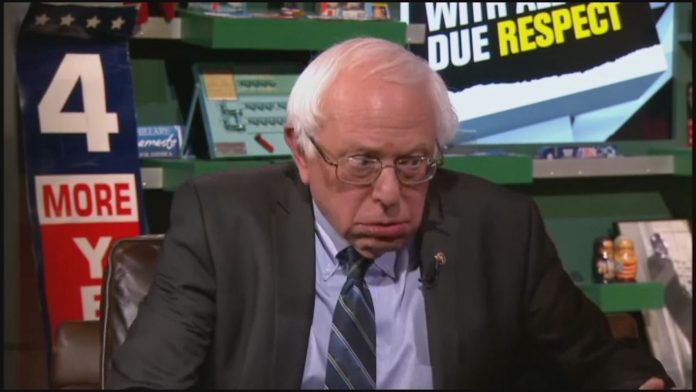A closer look at the multi-count unfair labor practice (ULP) charge filed against Bernie Sanders’ campaign on Monday exposes serious potential violations of the law.
Following more than a week of allegations that he was paying his unionized field organizers less than the $15 he advocates, the Bernie Sanders campaign was rocked on Monday by an unfair labor practice charge filed at the National Labor Relations Board and which was first reported here.
Though details were initially scant, The Hill obtained a more complete copy (in full below) of the multi-count charge that give more details as to the severity of the charges.
Here is the statement of the complainant, which also indicates the individual will be filing a charge against the United Food & Commercial Workers (UFCW) for allegedly breaching its Duty of Fair Representation (the ‘DFR’ referenced below):
“The employer failed to notify us upon hire that we had a CBA and maintained that we were “at-will.” Employer violated the CBA by requiring additional work days, and failing to provide days off as required. Employer further violated the CBA in multiple ways, and the Union did nothing (I will be filing a DFR against them). At hiring, employer promised some employees housing, and not others; some were promised expenses, and others were not. The CBA requires relocation expenses be paid. Employer retaliated against me when I organized the bargaining unit and sent an email requesting compliance with the CBA (I understand CBA violations are not ULPs– the ULP arises from the retaliation).”
The allegations contained within the unfair fair labor practice charge are the type that employers often face when they are accused of so-called ‘union busting’. . . except the Sanders campaign purposefully unionized its own staff.
Here are the specific alleged violations of law, as contained in the unfair labor practice charge agains the Sanders campaign:
- Within the previous six months, the Employer discharged an employee(s) because the employee(s) joined or supported a labor organization and in order to discourage union activities and/or membership.
- Within the previous six months, the Employer discharged an employee(s) because the employee(s) engaged in protected concerted activities by, inter alia, discussing wages and/or other terms and conditions of employment and in order to discourage employees from engaging in protected concerted activities.
- Within the previous six months, the Employer discharged an employee(s) because the employee(s) engaged in protected concerted activities by, inter alia, protesting terms and conditions of employment and in order to discourage employees from engaging in protected concerted activities.
- Within the previous six months, the Employer disciplined or retaliated against an employee(s) because the employee(s) joined or supported a labor organization and in order to discourage union activities and/or membership.
- Within the previous six months, the Employer disciplined or retaliated against an employee(s) because the employee(s) engaged in protected concerted activities by, inter alia, discussing wages, hours, or other terms and conditions of employment and in order to discourage employees from engaging in protected concerted activities.
- Within the previous six months, the Employer disciplined or retaliated against an employee(s) because the employee(s) engaged in protected concerted activities by, inter alia, protesting terms and conditions of employment and in order to discourage employees from engaging in protected concerted activities.
- Within the previous six-months, the Employer has interfered with, restrained, and coerced its employees in the exercise of rights protected b Section 7 of the Act b interrogating employees about their union activities.
- Within the previous six months, the Employer failed and refused to bargain in good faith with the union as the collective bargaining representative of its employees by making unilateral changes in terms and conditions of employment.

Unless the individual withdraws the charge, the NLRB will investigate the charge and may hold a hearing(s) before determining whether the Sanders campaign actually committed an unfair labor practice.
The process itself could drag on for months—which is not likely helpful to Sanders’ campaign against his fellow Democrat-primary rivals.
Unfortunately for Sanders and his campaign management team, they are learning what it likes to be an employer who, as most employers know, must follow the law.
Sanders Charge Detailed on Scribd
As a side note:
The more I read about @BernieSanders and the relationship with the @UFCW400, the more it appears that @SenSanders might have gotten himself a "sham" union with a "sweetheart deal."
Bernie tells the union what he wants, they agree, and get dues.
— LaborUnionReport.com (@WorkPlaceRpt) July 26, 2019





